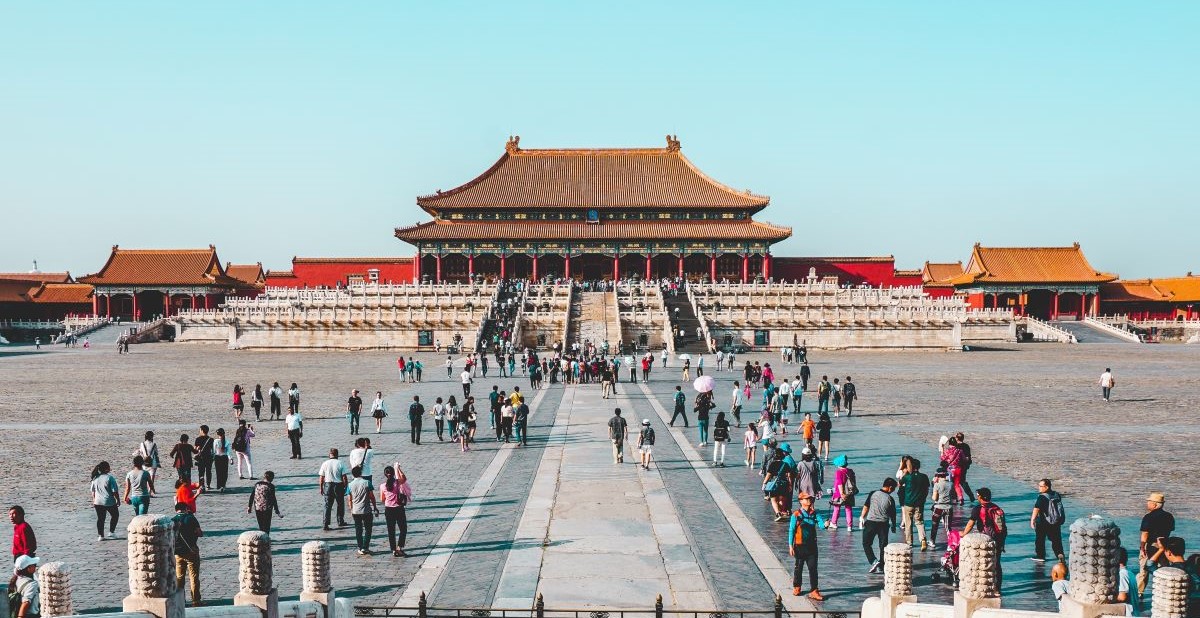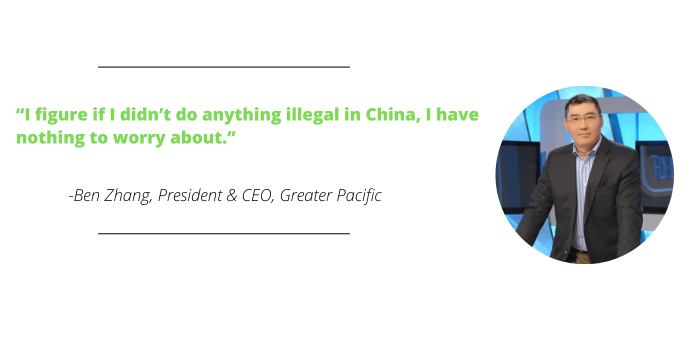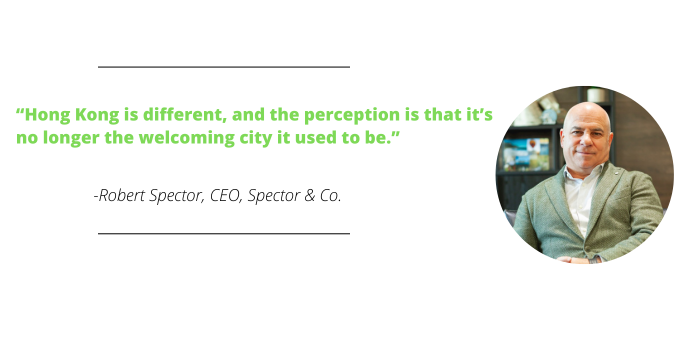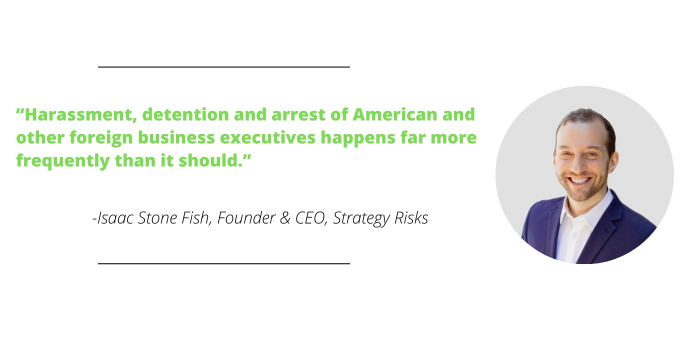Promo Leaders Still Traveling To China Amid Safety Concerns

Leaders in the promotional products industry may be reluctant to travel to Mainland China in the wake of Beijing preventing executives from leaving the country.
In the past month, both a Hong Kong-based senior executive at U.S. risk-advisory firm Kroll and a senior investment banker at Japanese firm Nomura have been detained in China without either being the direct target of an investigation, The Wall Street Journal reported.
As a result, nearly 20% of respondents are reducing business travel to China, according to a U.S. government-linked survey reviewed by the WSJ.
- Tammy Krings, chief executive of ATG Travel Worldwide, told WSJ that she has seen a roughly 25% increase in cancellations or delays of business trips to China by U.S. companies in recent weeks.
During the summer, the U.S. State Department issued a Level 3 travel advisory regarding Mainland China, urging U.S. citizens to reconsider travel due to the arbitrary enforcement of local laws, such as exit bans and wrongful detentions.
The U.S. State Department says that the Chinese government has used travel restrictions to:
- compel individuals to participate in government investigations;
- pressure family members of the restricted individual to return to China from abroad;
- resolve civil disputes in favor of Chinese citizens;
- gain bargaining leverage over foreign governments.
Promo’s Response
Ben Zhang, president and CEO of Greater Pacific (PPAI 191353, S9) – ranked the No. 48 supplier in the PPAI 100 – says he’s had second thoughts about an upcoming visit to the company’s Shanghai office.
“I spoke to a guy in the construction business who traveled to China a couple months ago, and a customs officer took him to a little black house to ask him questions about what he’s doing in the U.S. and what his purpose was coming to China,” Zhang says. “Twenty minutes later, he was released. Everything was fine, but he was scared and really sweaty.”
At the same time, Zhang hasn’t been to Shanghai since before the COVID-19 pandemic. He’d like to visit his 86-year-old mother, the rest of his family and the nearly 20 employees in that office.
 “I figure if I didn’t do anything illegal in China, I have nothing to worry about,” Zhang says. “Plus, the Chinese central government wants foreign investors to return. So, if you’re going for business and have some invitation from a Chinese company, the risk is very low.”
“I figure if I didn’t do anything illegal in China, I have nothing to worry about,” Zhang says. “Plus, the Chinese central government wants foreign investors to return. So, if you’re going for business and have some invitation from a Chinese company, the risk is very low.”
While Zhang may be on the fence, other promo firms remain committed to their itineraries. For example, leaders from PCNA (PPAI 113079, S15) – ranked the No. 7 supplier in this year’s PPAI 100 – are still traveling to China. “We haven’t changed any plans,” says Liz Haesler, global chief merchandising officer at PCNA. “Of course, if there are any team members that aren’t comfortable traveling, we would never ask them to do anything they aren’t comfortable doing.”
 Leaders from Spector & Co. (PPAI 168328, S10) – ranked the No. 47 supplier in the PPAI 100 – are also still traveling to China, but it’s “definitely not business as usual,” according to CEO Robert Spector.
Leaders from Spector & Co. (PPAI 168328, S10) – ranked the No. 47 supplier in the PPAI 100 – are also still traveling to China, but it’s “definitely not business as usual,” according to CEO Robert Spector.
“There are some individuals out there who are fearful of traveling to Hong Kong and China,” Spector says. “Perhaps not that they’ll be nabbed, but it just feels like everything is different now. Hong Kong is different, and the perception is that it’s no longer the welcoming city it used to be.”
Travel Safety Tips
Isaac Stone Fish, a risk assessor specializing in geopolitical business concerns surrounding China, says it’s a “sad reality” that traveling to China isn’t as safe as it once was.
“Harassment, detention and arrest of American and other foreign business executives happens far more frequently than it should,” says Stone Fish, founder and CEO of Strategy Risks.
He suggests a couple ways for executives in the promotional products industry to increase safety on their travels to China.
 “Always travel with a phone and a laptop purchased exclusively for that purpose and understand that data security is very hard to maintain,” Stone Fish says. “Second, understand that Chinese staff and partners are more vulnerable to arbitrary or punitive actions by the Communist Party. If you need to have sensitive conversations with them, do so in private, away from phones, laptops and the near ubiquitous security cameras.”
“Always travel with a phone and a laptop purchased exclusively for that purpose and understand that data security is very hard to maintain,” Stone Fish says. “Second, understand that Chinese staff and partners are more vulnerable to arbitrary or punitive actions by the Communist Party. If you need to have sensitive conversations with them, do so in private, away from phones, laptops and the near ubiquitous security cameras.”
- Some U.S. companies outside the promo industry have gone the extra step of hiring security consultants to run background checks on their employees to check for dual nationalities, military experience or politically sensitive social media posts that may draw the attention of Chinese officials, WSJ reported.
Meanwhile, China relaxed visa rules for business travelers in August to help attract foreign investment, Bloomberg reported.

